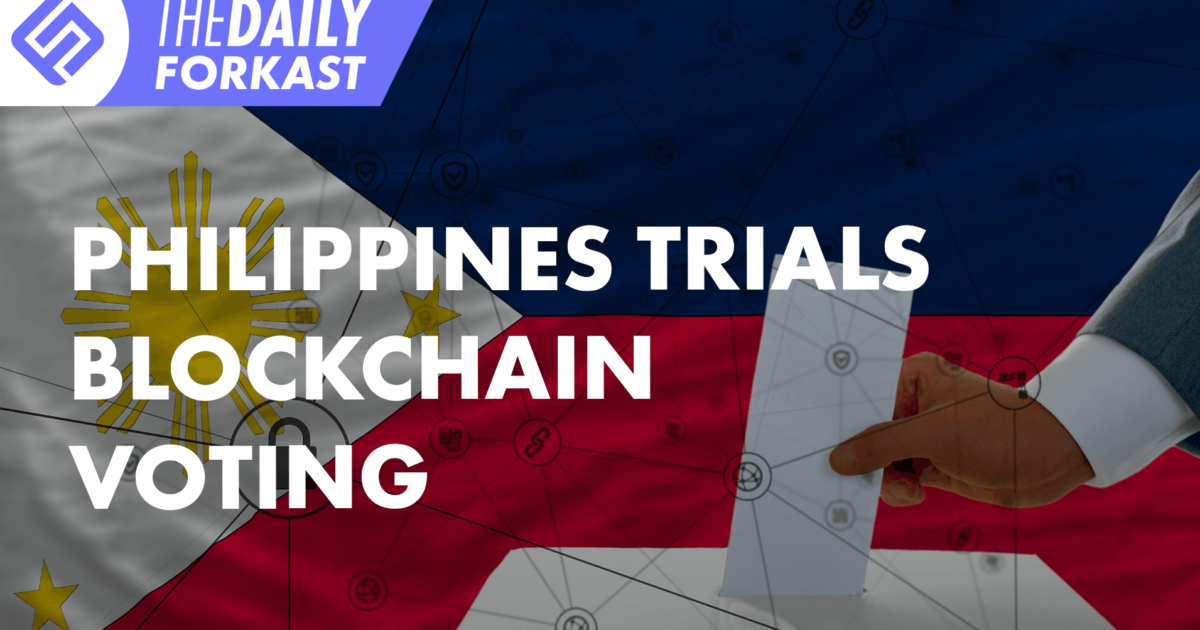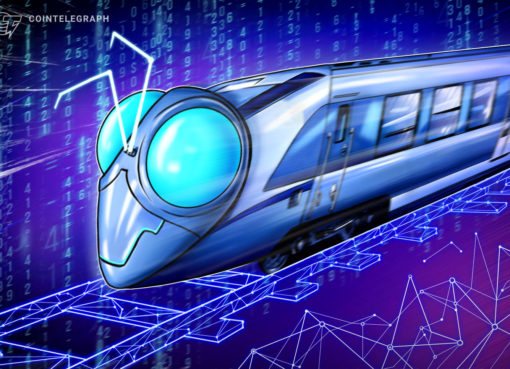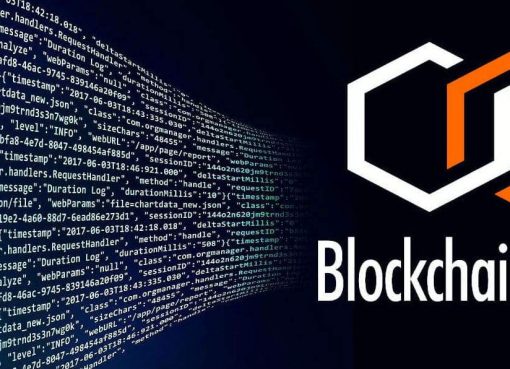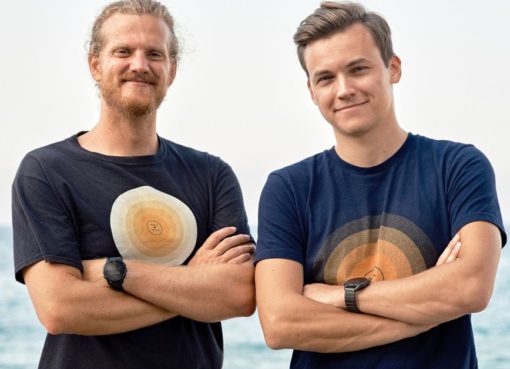Transcript
Our newsroom always has its eye on how Blockchain technology can change the world, and today the focus is on voting.
Welcome to The Daily Forkast October 26, 2021. I’m Angie Lau, Editor-in-Chief of Forkast.News covering all things blockchain.
Well, the Philippines has a huge overseas population, many of whom struggle to vote, but could blockchain voting offer the solution? We’re going to take a look at that story, the hurdles such an ambitious project needs to overcome and a whole lot more coming up.
Let’s get you up to speed from Asia to the world.
First up, the Philippines is looking into blockchain voting, with an eye on rolling it out by 2025.
However, one of the companies pitching to be involved in the project is Voatz, an American startup that has had mixed success with some minor state elections in the U.S.
But is the promise of blockchain voting too good to ignore? Forkast.News, Regina Lay has more from the Philippines.
The Philippines has begun mock trials of blockchain voting, with the express goal of convincing more of the seven to 10 million Filipinos working overseas to exercise their rights.
The Philippine Commission on Elections, or COMELEC, told Forkast.News, it doesn’t matter who you ask.
“Voters always say that the low voter turnout is primarily because it is such a hassle for them to go to the embassies and consulates just to vote.”
And governments around the world, including in the U.S, are also looking at whether blockchain can stamp out voter fraud.
The biggest selling point of blockchain voting is its immutability, wherein votes recorded on the chain are very difficult to alter. Voatz CEO Nimit Sawhney told Forkast.News, what that means:
“Once something is written, it cannot be tampered with very easily, which means even if someone’s a system administrator, someone’s a government, someone has full access to the system, it’s written in a manner that it can’t be changed.”
But blockchain voting has its critics – the Massachusetts Institute of Technology put out a report identifying a string of vulnerabilities in the app built by Voatz. And while Utah, Arizona and Colorado successfully used the app in Republican state conventions, West Virginia, which offered Voatz to counties statewide in 2018, disallowed it suddenly in last May’s primaries, citing security concerns.
However, COMELEC remains confident that the safeguards are adequate.
“Once a vulnerability is exposed in this industry, people waste no time patching those vulnerabilities. So yes, we admit that, you know, when a technology is new, there will be vulnerabilities. But this does not mean that the industry remains stagnant.”
Jimenez says the target for rollout is the 2025 elections.
For Forkast.News, I’m Regina Lay, Manila, the Philippines.
Meanwhile, from tourism to crypto mining?
Australia’s Byron Bay may be best known locally as a tourist hotspot that’s home to many Hollywood A-list celebrities, but could it be the next crypto mining hot spot too?
The coastal town is set to host the country’s biggest bitcoin mining operation, 100% powered by renewable electricity.
Forkast.News Lachlan Keller has more on what it means for the pool – the global mining pool that is – from Melbourne, Australia.
Mawson Infrastructure Group has struck a deal with leading renewable energy firm Quinbrook Infrastructure Partners to build crypto mines across Australia.
The first of those, in Byron Bay, is set to come online this week and is expected to add 0.4 exahashes to the global mining pool.
According to data from the Cambridge Centre for Alternative Finance, Australia currently accounts for a 0.19% of the current global hash rate.
However, this may be set to increase as many of the recommendations of the recent Australian Senate review on fin-tech seek to boost the local crypto industry. One of those recommendations is a 10% tax break for mining operations using 100% renewable energy. Mawson’s Chief Commercial Officer, Nick Hughes-Jones told Forkast.News, the company’s founder testified as part of that process, helping to inform good policy going forward.
Forkast.News, I’m Lachlan Keller from Melbourne, Australia.
And finally, today, amid a backdrop of criticism from Chinese state media over NFTs, there’s been some subtle rebranding.
Alipay, the mobile payment app, which is ubiquitous in China, has actually changed the name of the NFT collections on its platform to “digital collectibles”.
Alipay has actively rolled out NFT artworks built on its own AntChain. Just last month it created NFTs featuring the torch of the 2022 Asian Games, which are to be held in Hangzhou, China.
Meanwhile, Huanhe, an NFT app launched in August by Tencent, has also removed NFT references from that app.
In a statement, AntChain said it conducts its business around digital collectibles in strict compliance with laws and regulations. And it goes on to say that it firmly opposes speculation around NFT products.
Although NFTs are not included in China’s stepped-up ban on crypto related activities, an opinion piece in the Securities Times did criticize NFTs as “hype” last month, the first potential policy shot across the bows as it were.
We’re going to be keeping a close watch for more rebranding to come.
And that’s The Daily Forkast from our vantage point right here in Asia.
Hit like, hit subscribe. We really appreciate it, and it helps us reach our goal that much closer to getting more of you. More subscribers. Always good thing for us and hopefully for you.
For more, visit Forkast.News. I’m Editor-in-Chief Angie Lau. Until the next time.




